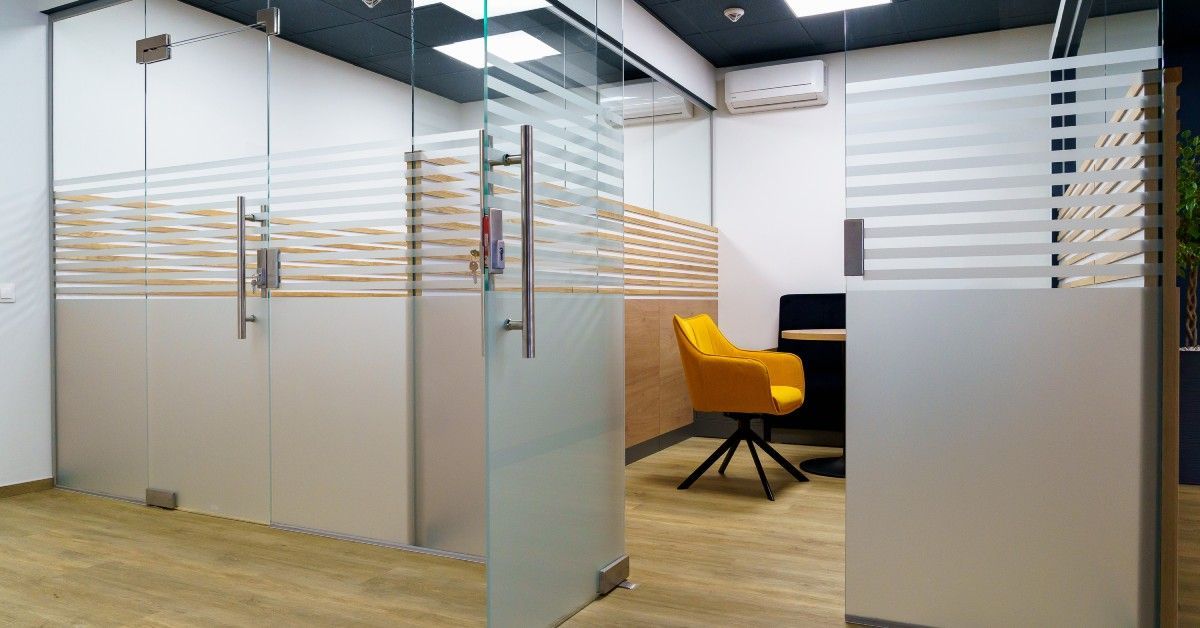10 Benefits of Private Office Spaces for Entrepreneurs
Building a business demands focus, credibility, and structure, and a private office space can help you achieve those elements. A dedicated office can elevate your brand, help you concentrate on high-value work, and show clients a professional environment that reflects your standards. Consider these benefits of private office spaces for entrepreneurs to support growth, improve operations, and create the conditions for long-term success.
1. Professional Image Enhancement
First impressions matter when you’re meeting clients, investors, or partners. A private office immediately signals that your business is established and reliable, which builds trust before the first slide of a pitch deck.
Entrepreneurs who move their meetings from informal settings to professional suites have a higher chance of closing deals because the environment reinforces confidence. Treat your office as a physical representation of your value proposition, and align the decor with the standards you want your brand to project.

2. Dedicated Work Environment
Noise, clutter, and interruptions cut into productive hours. A private office removes those obstacles by creating a space tailored to your workflow and schedule.
Entrepreneurs who maintain consistent routines using the same desk, same tools, same daily cadence can hit deadlines more predictably and deliver a steadier client experience. Set clear working windows, silence nonessential notifications, and reserve a block each day for intensive tasks to maximize the benefits of your dedicated space.
3. Improved Time Management
Commuting to a defined office anchors your day and prevents schedule drift. Regular start and finish times reduce the temptation to multitask and help you batch similar tasks for better flow. Entrepreneurs that block time for calls, proposals, and creative work improve their operations through a scheduled organization.
New business owners who calendar everything—from prospecting to follow-ups—spot scheduling conflicts earlier and protect their most valuable hours. Try building a weekly template for recurring activities, and review it every Friday to adjust for the following week based on your pipeline and deliverables.
4. Access to High-Quality Amenities
Private offices often include furnished suites, secure high-speed internet, printers, mail services, and on-demand meeting rooms without the delays of sourcing and setting up equipment yourself. These amenities allow you to direct your time and attention toward clients and product improvements.
For example, the turnkey setup of Coastal Compass’s executive suites in Florida lets you onboard a new hire this week, host a discovery workshop tomorrow, and keep up your business’s momentum without logistical bottlenecks.
5. Privacy for Sensitive Work

Meeting clients in a private, well-appointed space keeps sensitive topics out of public environments. Confidentiality is nonnegotiable for attorneys, health care practitioners, financial planners, and anyone managing proprietary data. One of the benefits of private office spaces for entrepreneurs is that they offer a place for secure calls, protected document handling, and negotiations or compliance reviews.
Regulations such as HIPAA, GLBA, and GDPR amplify the stakes and require thoughtful controls that public spaces rarely accommodate. Entrepreneurs who work with high-net-worth clients or regulated information build trust faster when privacy is visible and enforced. Establish protocols for visitor access, clean desk policies, and call privacy, and consider white noise machines or soundproofing to keep conversations contained.
6. Networking Opportunities
Private office buildings attract diverse professionals—including attorneys, consultants, investors, and technology leaders—who often become collaborators or clients. Informal hallway conversations lead to warm introductions, while building-hosted workshops or lunches spark partnerships.
Entrepreneurs who participate in community events, share expertise, and follow up promptly tend to see new business and mentorship opportunities arise organically. Create a simple outreach routine where you introduce yourself to neighboring businesses, exchange cards, and suggest a short coffee to explore mutual value.
7. Enhanced Work-Life Balance
Separation between work and home helps entrepreneurs switch off and recharge at appropriate times. Stress typically drops when your laptop remains at the office and your living room sticks to its intended purpose.
Set an end-of-day ritual that includes a final inbox pass, next-day priorities, desk reset, so you can walk out of the office each day with a clear mind and return more focused. Communicate office hours to clients and team members, and honor them. Consistency builds respect for your time and keeps evenings restorative.
8. Streamlined Operations
Consolidating tools, files, and processes in one location reduces lost effort. Mail handling, package reception, document storage, and print management become predictable, so you spend less time on administrative tasks.
Standardize workflows to free your cognitive load for strategy and client outcomes. Map your core processes, label storage, and centralize shared resources so everyone involved in your business follows the same playbook.
9. Positive Collaboration Environment
Small business teams thrive with a home base that supports both collaboration and individual focus. A private office lets you create a zone for stand-ups, quiet work, or formal chats, which improves communication without constant interruptions.
Entrepreneurs gain an advantage when they demonstrate their product live, whiteboard strategies, and finalize agreements in a single visit with business partners. Prepare a standard room setup checklist that covers screens, adapters, refreshments, printed agendas so every meeting runs smoothly and reinforces your brand.
10. Tax and Legal Benefits
Maintaining a dedicated business address and workspace may support compliance with local regulations and unlock potential deductions. Consult a qualified accountant about what applies to your structure. Rent, utilities, and certain office expenses may be deductible under current rules. A formal lease and clear separation from personal use strengthen your documentation, which matters during audits or lender reviews.
Entrepreneurs who keep accurate records, save receipts, and coordinate with legal counsel avoid expensive missteps and free up capital for growth. Schedule a quarterly finance review to confirm that your office-related expenses align with current guidance.
A private office provides a credible brand presence, a quiet environment for deep work, and an operational base that keeps your business moving forward. The right location with the right amenities shortens the path from prospect to client and gives you time back for strategy and service. If securing this advantage is on your road map, reach out to Coastal Compass to choose a space that gives your business room to grow.



